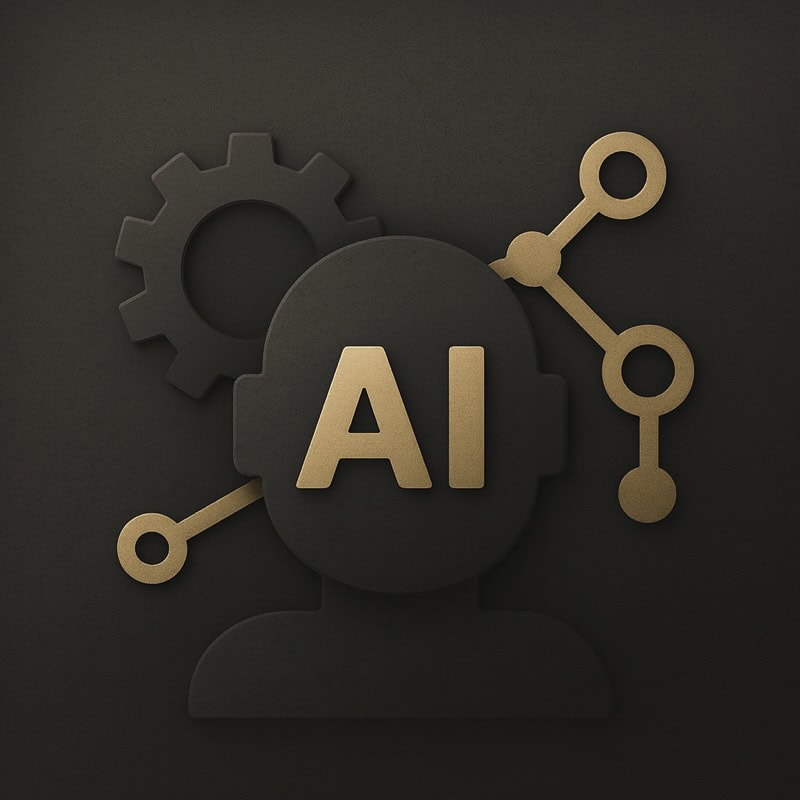The AI Knowledge Management Revolution
Knowledge management has been fundamentally transformed by artificial intelligence, revolutionizing how organizations capture, organize, and distribute institutional knowledge across teams and departments. Companies implementing AI-driven knowledge management systems are achieving up to 90% improvement in information accessibility, 75% reduction in knowledge search time, and 80% better knowledge retention through intelligent content organization and automated knowledge capture processes.
Intelligent Content Capture and Documentation
Building effective AI knowledge management begins with implementing intelligent content capture systems that automatically identify, extract, and document valuable knowledge from meetings, conversations, emails, and collaborative work sessions. These capture systems utilize natural language processing and machine learning to identify actionable insights and important information automatically.
Content capture protocols analyze communication patterns, decision points, expertise sharing, and problem-solving processes to identify knowledge worth preserving. The system automatically generates structured documentation, creates knowledge articles, and maintains version control while ensuring captured knowledge remains accurate and accessible for future use.
Automated Knowledge Organization and Categorization
Advanced AI knowledge systems employ automated organization and categorization that structures information into logical hierarchies, topic clusters, and searchable taxonomies without manual intervention. This automated organization approach improves knowledge discoverability by 65% while reducing content management overhead significantly.
Organization algorithms analyze content relationships, topic similarity, and user access patterns to create intuitive knowledge structures. The system automatically tags content, creates cross-references, and maintains dynamic categorization that evolves based on usage patterns and emerging topics within the organization.
Intelligent Knowledge Search and Discovery
Sophisticated AI knowledge management implements intelligent search capabilities that understand user intent, context, and expertise level to deliver precisely relevant information quickly. These search systems go beyond keyword matching to provide semantic search, contextual recommendations, and expertise-based result filtering.
Search algorithms analyze query intent, user expertise, project context, and historical search patterns to deliver optimal knowledge results. The system provides related content suggestions, expert connections, and progressive disclosure that guides users to comprehensive understanding while respecting their time constraints and information needs.
Expert Knowledge Identification and Connection
AI-driven knowledge management includes expert identification systems that automatically recognize subject matter experts based on content creation, problem-solving contributions, and knowledge sharing activities. This expert mapping enables knowledge seekers to connect with the right expertise quickly and efficiently.
Expert identification algorithms analyze contribution patterns, expertise domains, and knowledge quality indicators to create comprehensive expert directories. The system facilitates expert connections, enables knowledge mentoring relationships, and provides expertise recommendations that enhance collaborative problem-solving and knowledge transfer.
Dynamic Knowledge Gap Analysis
Advanced AI knowledge systems perform continuous knowledge gap analysis that identifies missing information, outdated content, and knowledge areas requiring attention. This gap analysis enables proactive knowledge management that ensures organizational knowledge remains complete and current.
Gap analysis algorithms compare available knowledge against project requirements, industry standards, and emerging trends to identify knowledge deficiencies. The system automatically prioritizes knowledge creation needs, suggests content development projects, and tracks knowledge completeness to maintain comprehensive organizational knowledge coverage.
Collaborative Knowledge Creation Tools
Comprehensive AI knowledge management provides collaborative knowledge creation tools that facilitate team-based content development, peer review processes, and collective knowledge building. These collaborative features ensure knowledge creation becomes an integrated part of normal work processes rather than separate administrative tasks.
Collaboration tools enable simultaneous editing, provide intelligent conflict resolution, and maintain comprehensive version histories that preserve knowledge evolution. The system facilitates review workflows, enables crowdsourced content improvement, and provides quality assurance mechanisms that ensure knowledge accuracy and usefulness.
Knowledge Analytics and Usage Optimization
Advanced AI knowledge management incorporates comprehensive analytics that track knowledge usage patterns, identify popular content, and measure knowledge management effectiveness across the organization. These analytics enable continuous optimization of knowledge resources and strategic knowledge management planning.
Analytics systems monitor search patterns, content usage, user satisfaction, and knowledge application outcomes to measure knowledge management success. The system provides detailed reporting on knowledge ROI, identifies optimization opportunities, and enables data-driven decisions about knowledge management strategy and resource allocation for sustained competitive advantage.


